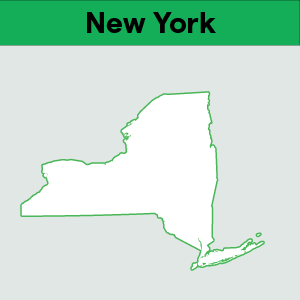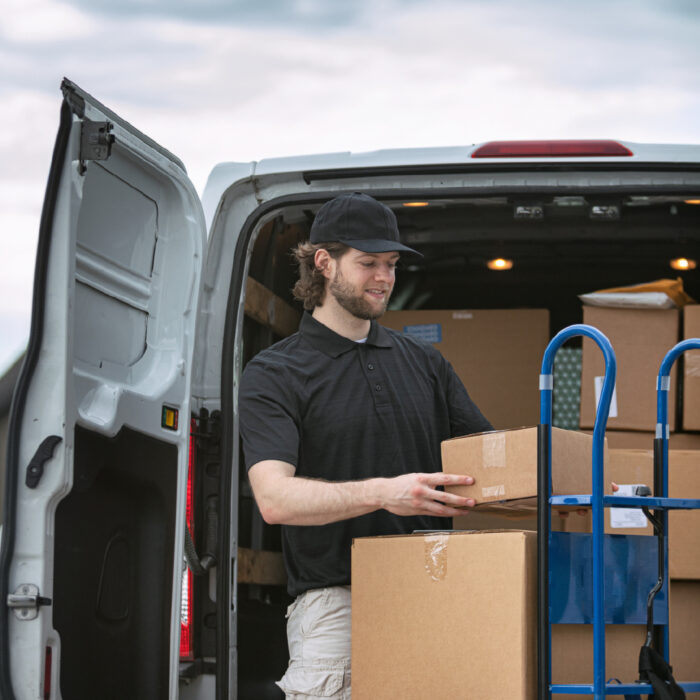Recreational cannabis and sales tax, explained
by November 23, 2024
Many states, like Arizona, Montana, New Jersey and South Dakota joined many other US states in legalizing the use and possession of recreational cannabis. Of course, when something becomes legal what is the first thing that a government wants to do? Tax it.
Now that the sale of cannabis is legal in more places, states have seen that they can make extra revenue by levying sales tax and other excise taxes on a newly legal industry with built-in popularity. And states have put this tax money to good use in the past. For example, Colorado uses their cannabis tax revenue to fund education programs, and Massachusetts uses theirs for public safety.
This post will explain how sales tax and other state excise taxes work when it comes to taxing recreational cannabis.
But first…
What’s the difference between medical cannabis and recreational cannabis? Legalization and decriminalization?
Since legal cannabis is a fairly new concept, some of the terms around it can be quite confusing. Medical cannabis is basically what it sounds like – cannabis used for medical purposes such as for pain relief.
Recreational cannabis legalization means that cannabis is legal in a state even when used “just for fun” and not for any medical purpose.
Some states, like Florida, consider medical cannabis legal, but still consider recreational cannabis use and possession illegal. Still other states have decriminalized the possession of cannabis but do not consider it strictly legal. And those states may still prosecute the distribution of cannabis, or the possession of large amounts.
What does that mean? Double Blind magazine sums up the difference: “When something… is decriminalized at the state or local level, it remains federally illegal, while punishments for possession may be reduced to a fine or set as the lowest law enforcement priority. Legalization, on the other hand, is when a once-banned substance is no longer illegal, but may still have restrictions like age and possession limits, and in some cases may still require licensing for certain retail or production purposes, as with cannabis.”
And while cannabis may be legal and/or decriminalized, states still reserve the right to levy restrictions. For example, states often impose an age limit on who can purchase cannabis, and still have penalties for potentially dangerous acts like driving under the influence.
In this post, we’re going to strictly cover how sales tax and excise taxes work when it comes to selling legal recreational cannabis.
How sales tax works in states where recreational cannabis is legal
Find your state on the list below to discover if sales tax and any additional excise taxes are levied on the sale of recreational cannabis.
| State | Sales Tax | Excise Tax | Notes |
| Alaska | Municipalities only; Alaska does not have a state sales tax | Varies; Levied on cultivators only, not charged at retail | AK retailers should check with your city or borough to determine if you are required to charge local sales tax |
| Arizona | Combined state and local rates | 16% | |
| California | Combined state and local rates | 15% | |
| Colorado | 15% + any local option sales tax rates | 15%; levied on certain retailers and producers, not charged at retail | Cannabis is not subject to the state 2.9% sales tax rate |
| Illinois | Combined state and local rates | 10% excise tax on the retail sale of products with less than 35% THC content; 25% state excise tax on the retail sale of products with greater than 35% THC content; 20% excise tax on the retail sale of cannabis-infused products (ex: edibles) | |
| Maine | A special 10% sales tax rate | Excise tax levied on cultivators only, not charged at retail | |
| Massachusetts | State and (up to 3%) local sales tax rates + an extra 10.75% sales tax | ||
| Michigan | The state’s 6% sales tax | 10% | The sale price subject to sales tax includes the 10% excise tax rate |
| Montana | Montana does not have a state sales tax | TBD | Montana only voted in recreational cannabis sales on Nov 3, 2020. We’ll update here as they update any new taxes or regulations. |
| New Jersey | 6.25% state tax + an optional 2% local tax | TBD | New Jersey only voted in recreational cannabis sales on Nov 3, 2020. We’ll update here as they update any new taxes or regulations. |
| Nevada | Combined state and local rates | 10% | |
| Oregon | Oregon does not have a state sales tax, but does have a 17% special sales tax on cannabis; local areas can also levy up to an additional 3% in sales tax on recreational cannabis | ||
| South Dakota | TBD | 15% | South Dakota only voted in recreational cannabis sales on Nov 3, 2020. We’ll update here as they update any new taxes or regulations |
| Vermont | TBD | 14% | The bill legalizing recreational cannabis in Vermont only passed October 7, 2020. The state is still working out taxation and regulations. |
| Washington | N/A | 37% |
Alaska
Cannabis for both medical and recreational use is legal and decriminalized in Alaska.
Alaska levies an excise tax on recreational cannabis cultivators, though not at retail sale. Some areas also have a sales tax on cannabis.
Alaska recreational cannabis sales tax
Alaska does not impose a statewide sales tax, however several municipalities (i.e. cities and boroughs) within the state do. (You can find the annual list of Alaska municipalities that levy a sales tax here.)
For example, Anchorage levies a 5% sales tax on the retail sale of cannabis and cannabis products. If you are a recreational cannabis retailer, check with your city or borough for more on whether you are required to charge sales tax.
Alaska recreational cannabis excise tax
This tax is imposed on cultivators, only. In Alaska, the cannabis control board is responsible for taxation of cannabis and provides information to cannabis retailers about how to pay the excise tax.
Arizona
Cannabis for both medical and recreational use is legal and decriminalized in Arizona.
Arizona voters just decided to legalize recreational cannabis during the November 3, 2020 election. This means Arizona is still in the process of validating the vote and regulating sales, so officials predict that the first dispensaries won’t be legally able to sell until March 2021.
Arizona will levy both any applicable state and local transaction privilege tax (TPT) and a 16% excise tax on the sale of recreational cannabis. (TPT is Arizona’s version of sales tax and works in the same way that sales tax works in other states.)
Taxes in Arizona are regulated by the Arizona Department of Revenue. We’ll update this post as Arizona puts their new state and local sales tax regulations into place.
California
Cannabis for both medical and recreational use is legal and decriminalized in California.
California imposes both the combined state and local sales tax rate on any purchase of legal cannabis and a 15% excise tax.
In California, the California Department of Tax and Fee Administration governs the taxation of cannabis. You can read their Tax Guide for Cannabis Businesses here.
Colorado
Cannabis for both medical and recreational use is legal and decriminalized in Colorado.
Recreational cannabis is subject to a 15% state retail sales tax and any local option sales tax. However it is exempt from the 2.9% Colorado state sales tax rate.
Recreational cannabis is also subject to a 15% excise tax.
Read more at the Colorado Department of Revenue.
Illinois
Cannabis for both medical and recreational use is legal and decriminalized in Illinois.
Recreational cannabis is subject to both the state and local retailer’s occupation tax (ROT) just like any other sale. (ROT is Illinois’s version of sales tax.)
Further, Illinois levies several excise taxes including:
- 10% excise tax on the retail sale of products with less than 35% THC content
- 25% state excise tax on the retail sale of products with greater than 35% THC content
- 20% excise tax on the retail sale of cannabis-infused products (ex: edibles)
Read more about cannabis tax at the Illinois Department of Revenue.
Maine
Cannabis for both medical and recreational use is legal and decriminalized in Maine.
Recreational cannabis is taxed at a special sales tax rate of 10% in Maine.
Cultivators are also charged an excise tax.
Read more about Maine’s recreational cannabis law here.
Massachusetts
Cannabis for both medical and recreational use is legal and decriminalized in Massachusetts.
Recreational cannabis is subject to state and local sales tax rates in Massachusetts, plus an additional 10.75% special sales tax rate. Local option sales tax rates on cannabis are capped at 3%.
Michigan
Cannabis for both medical and recreational use is legal and decriminalized in Michigan.
Recreational cannabis in Michigan is taxed at the Michigan 6% sales tax rate plus an excise tax of 10%.
Further, the sale price subject to sales tax includes the 10% excise tax rate. This means that for a $50 purchase, the retailer would add a 10% excise tax for a total of $55.00. And then the retailer would charge Michigan’s 6% sales tax on that $55 total. This means that a $50 item bought from a recreational cannabis shop would require a buyer to pay $8.30 in Michigan excise and sales taxes.
Read more about the taxation of recreational cannabis in Michigan here.
Montana
Cannabis for both medical and recreational use is legal and decriminalized in Montana.
Montana residents voted to legalize recreational cannabis in the November 3, 2020 election. While Montana does not have a statewide sales tax, the state plans to levy an excise tax on recreational cannabis sales. However, Montana has not yet announced how they plan to tax recreational cannabis.
We’ll update this post as Montana puts their new state and local sales tax regulations into place.
New Jersey
Cannabis for both medical and recreational use is legal and decriminalized in New Jersey.
New Jersey residents voted to legalize recreational cannabis in the November 3, 2020 election.
The successful vote allows for New Jersey to require retailers charge the state’s 6.25% sales tax on cannabis sales. It also allows for local municipalities to levy an extra 2% sales tax. However, New Jersey is still in the process of planning how they will tax recreational cannabis, and there is now word yet on whether they will also change an excise tax.
We’ll update this post as New Jersey puts their new state and local sales tax regulations into place.
Nevada
Cannabis for both medical and recreational use is legal and decriminalized in Nevada.
Recreational cannabis in Nevada is subject to both state and local sales tax and a 10% excise tax when sold for adult use to someone who is not a medical cannabis cardholder.
Read more about cannabis taxation in Nevada here.
Oregon
Cannabis for both medical and recreational use is legal and decriminalized in Oregon.
While Oregon does not generally have a state sales tax, the state charges a 17% special sales tax on cannabis. The state also allows municipalities to levy up to a 3% sales tax on recreational cannabis.
Read more about how cannabis taxes work in Oregon here.
South Dakota
On November 3, 2020 South Dakota became the first state to vote to legalize and decriminalize both medical and recreational cannabis on the same day.
Because South Dakota is new to taxing legal cannabis sales, they do not yet have any recreational cannabis tax regulations in place. However, they have announced they will charge a 15% tax on cannabis sales once the regulations are in place.
Vermont
Cannabis for both medical and recreational use is legal and decriminalized in Vermont.
Recreational cannabis became legal in Vermont on October 7, 2020. Because this bill passed so recently, the state has not yet finalized how they will tax retail sales. However, the bill allowed for a 14% excise tax on retail sales. It remains to be seen whether Vermont will also levy sales tax on recreational cannabis sales.
We’ll update this post as Vermont puts their new state and local tax regulations into place.
Washington
Cannabis for both medical and recreational use is legal and decriminalized in Washington.
Washington requires consumers to pay a 37% excise tax on all purchases of cannabis products.
Read more about sales tax on recreational cannabis in Washington here.
Ready to automate sales tax? To learn more about TaxJar and get started, visit TaxJar.com/how-it-works.







